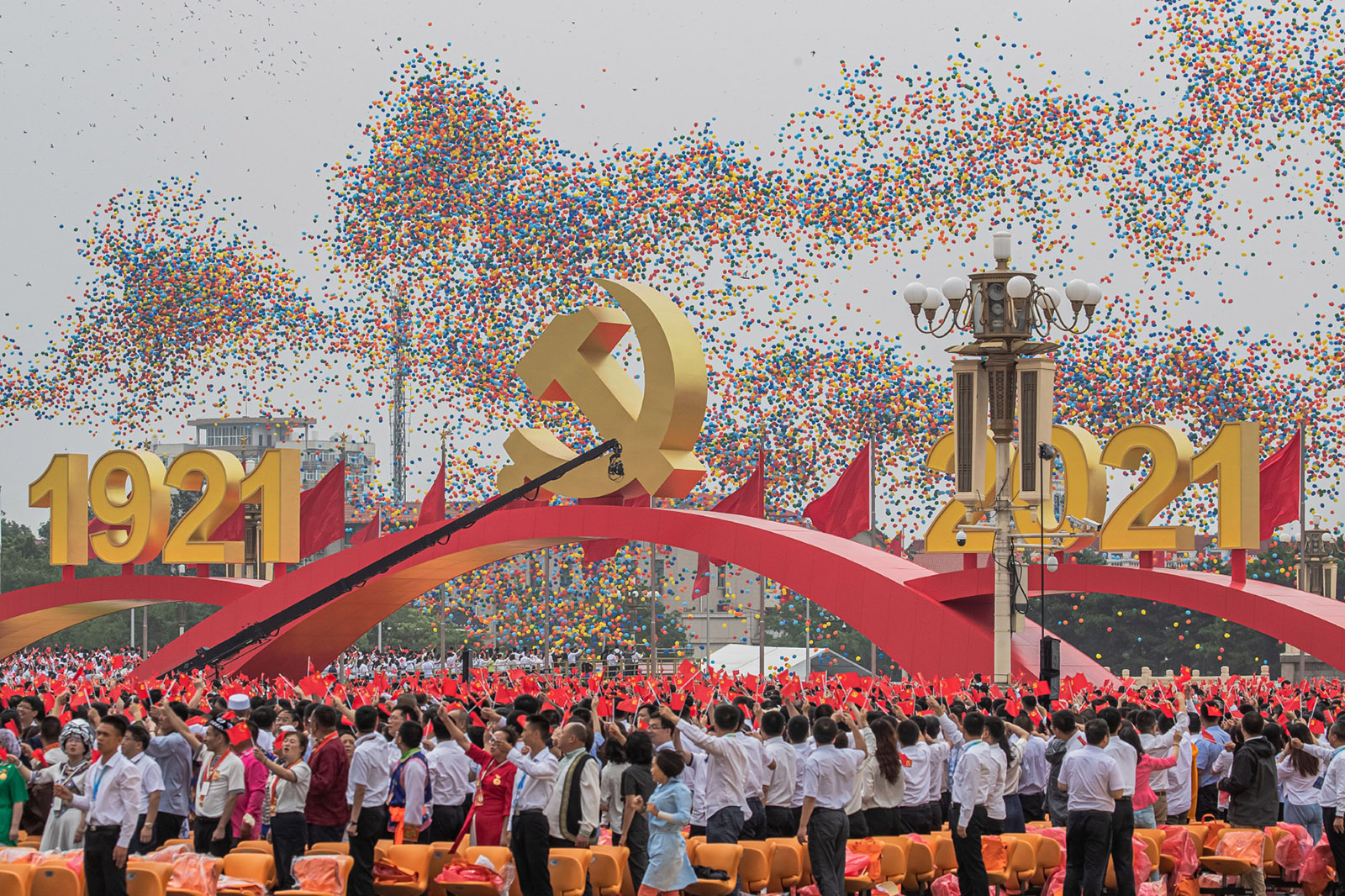Perry Link

Roughly two thousand years ago, the arrival in China of Buddhism from India brought major changes not only to China’s belief systems but to many aspects of its daily life. Buddhism’s approach on the whole was gentle, and indigenous Chinese versions of it eventually flourished. Zen was a Chinese invention. Then, beginning about two hundred years ago, the only comparably large foreign cultural influence on China began with the arrival of British gunboats on the Chinese coast. This was more disturbing. To China the West seemed to say, “Catch up or perish.” How to modernize became a Chinese obsession that led to many things, including the fevered contortions that the Chinese Communist Party (CCP) has put the country through over the past seventy years.
One way to measure China’s urge to transform itself is to note how often the word new has been used by Chinese leaders. In 1902 the concept of the “new citizen” took hold in Liang Qichao’s New Citizen Journal. Twenty years later the May Fourth Movement came to be known as the New Culture Movement. In 1934 Chiang Kai-shek launched his New Life Movement. The Communist takeover in 1949 was the advent of New China, and the Cultural Revolution in the late 1960s touted a “new socialist man.” After Mao Zedong died in 1976, the next few years were called “the new period.” Today, Xi Jinping’s watchword is “Socialism with Chinese Characteristics for a New Era.” It is important to note that new in these cases never refers to the same thing; each is a new new.
The tragedy of CCP policies in China can be seen as arising from excessive zeal for shortcuts. More successful East Asian transitions to the modern world, such as those in Japan, South Korea, and Taiwan, have done better by going step-by-step. Impatient for global preeminence, the CCP has rushed ahead several times and crashed. The Great Leap Forward in the late 1950s, which followed Mao’s plans for “surpassing Britain and catching up with America,” ended in the starvation of 30 million or more people. Cultural Revolution demands such as “make revolution in the depths of your soul” and “love Chairman Mao more than your parents” were intended as magical paths to a new human nature that China would exemplify for the world, but in fact they were a body blow to Chinese culture whose consequences have lasted until today. Deng Xiaoping’s one-child policy, intended in the late 1970s to jump-start a modern economy, led by the late 2010s to problems in labor supply and elder support sufficiently severe as to require abrupt reversals.
Xi Jinping’s recent flights of fancy suggest the same pattern. Some of his claims resemble Mao’s of the late 1960s: the East is rising over the West; China is a new model for the world; the Great Leader is correct by definition; Chinese people everywhere can identify with the New China and feel proud. During the “scar” years after the Cultural Revolution, Chinese intellectuals and officials were virtually unanimous in saying that nothing like it could happen again. At the time, I believed them. Now, I’m afraid I don’t. Cyber versions of Cultural Revolution “struggle sessions” have already appeared. A return of the Cultural Revolution, adapted for the new era, is certainly possible.
In appraising the history of the CCP, it is important to distinguish between members who joined out of idealism in its early years and those who joined out of self-interest after the mid-1950s. Eloquent memoirs by people like Li Shenzhi, Wei Junyi, Liu Binyan, Fang Lizhi, Zi Zhongyun, and others show how young people were drawn to the party for its announced goals (including free speech and democracy) in the 1930s and 1940s and risked their careers and even their lives to join. In 1991 the journal Yanhuang chunqiu (China Through the Ages) began carrying reminiscences by these now-elderly people, detailing how the CCP had misled them in their early years. Since they were time-honored revolutionaries, the regime could not easily shut them up. But the journal was suppressed in 2016.
No comments:
Post a Comment